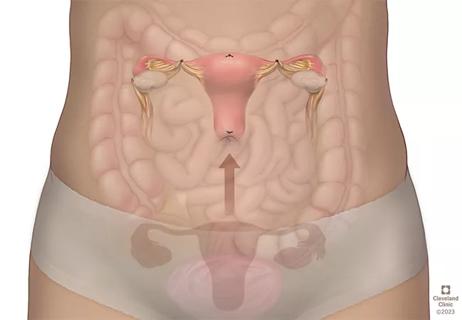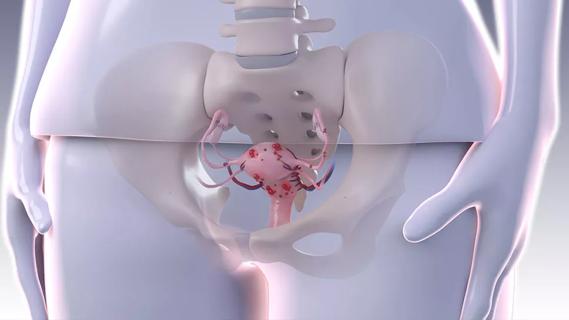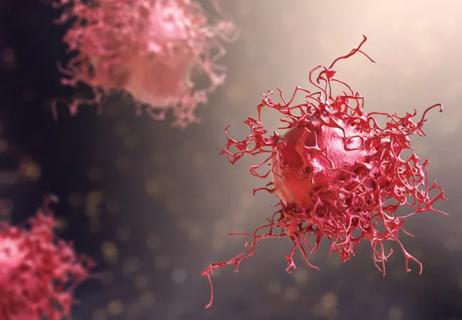Growing need for addressing fertility concerns

Fertility is a pressing issue for many young adults with cancer, yet some studies found the majority of patients felt their doctors didn’t adequately address their fertility concerns. In a recent survey, fewer than 50% of patients reported that their oncologist had discussed fertility preservation options with them.
The increased incidents of cancers in young people serves to drive home the need for comprehensive reproductive health for these patients. “Cancer treatment can impact fertility in many ways depending on the patient's age and where they are in their reproductive life,” says Cleveland Clinic’s Chief of Reproductive Endocrinology and Infertility Mindy Christianson, MD, MBA. “Even if young adults are not imminently trying to conceive and are undecided about having a family in the future, it’s still important that they have a consultation with a fertility specialist to understand their choices.”
Advertisement
Cleveland Clinic is a non-profit academic medical center. Advertising on our site helps support our mission. We do not endorse non-Cleveland Clinic products or services. Policy
Chemotherapy can be very harmful to the egg supply, depending on the patient’s age as well as the type and duration of treatment. Cyclophosphamide, for example, is known to be quite damaging to fertility. Radiation that targets the pelvis may also negatively impact female fertility by depleting the egg supply. In addition, hormone suppression therapy for estrogen receptor-positive breast cancer generally requires patients to delay childbearing for 5-10 years.
One outstanding question is what the impact of immunotherapy medication has on female fertility. Some data from breast cancer studies of biologics indicate that these medications do not appear to affect female fertility. However, there are still many unknowns. Because of this, fertility specialists typically recommend a washout period of three to six months after stopping immunotherapy before trying to conceive.
Currently, there are three primary ways to preserve fertility in women.
Freezing embryos may be considered as an option for patients who were already actively trying to conceive at the time of diagnosis. This involves a procedure to remove the eggs, fertilize them using a partner’s sperm or donated sperm and creating embryos that can be frozen and stored for future use.
Freezing eggs is a common option involving the removal and storage of eggs. Vitrification has made freezing eggs a more effective option than it was previously. This process “flash freezes” the eggs, helping to increase the viability of the eggs. Today, freezing eggs has a high success rate.
For either of the above options, the patient needs to have at least two weeks to take medication to stimulate the ovaries, to produce eggs and then to undergo the egg retrieval procedure. However, some patients don't have that time to wait before starting treatment.
Freezing ovarian tissue is another way to preserve fertility. This entails removing an ovary and freezing the tissue on the outside of the ovary (called the ovary cortex), which has hundreds of thousands of potential eggs. The tissue is frozen and then transplanted back into the patient once they’re in remission.
“There isn't a lot of data yet on the success rates of using frozen ovarian tissue, although data out of trials in the Netherlands and Sweden showed this procedure resulted in roughly a 30% chance of a live birth,” says Dr. Christianson. “However, about half of patients in those cases actually conceive unassisted after transplanting the tissue, and don’t need IVF.”
Advertisement
To prevent radiation damage to the ovaries and uterus, there are surgical procedures to suspend the uterus out of the pelvic area temporarily. This involves moving the uterus to the upper abdomen and returning it to place after treatment has completed. However, this is still a relatively new approach. To date, two children have been born from patients who received this procedure.
Male fertility is also impacted by many cancer treatments. Chemotherapy can damage sperm, while hormone therapy may decrease sperm production. Radiation near the pelvis can also cause infertility. In addition, radiation to the brain can harm the pituitary gland, reducing the production of sperm.
Sperm banking is the most common approach to fertility preservation in men, as the sperm can be frozen indefinitely. Semen is collected and then frozen so that it can be implanted in a woman via IVF in the future.
For men undergoing radiation to the pelvic region, there are some protective measures such as testicular shields that can protect against scatter radiation.
At the time of cancer diagnosis, patients should receive a referral to a fertility specialist so they understand the impacts of treatment and their choices. Depending on the situation, consults may be conducted virtually for patients who don’t live near a fertility center. For female patients, an anti-Müllerian hormone test is generally performed ahead of the visit to assess their ovarian reserve.
Currently, 19 states have mandates for health insurers to offer infertility coverage. “This can be a challenge for access to care,” says Dr. Christianson. “However, even for patients with financial concerns, I would still encourage getting a consultation because there are resources available to help patients.”
"All young adults with cancer should receive counseling regarding fertility preservation, even if they decide they do not want fertility preservation in the future. There’s a misconception that if someone is starting treatment and doesn’t have time for fertility planning that they shouldn’t have a consultation, but it’s still really important to counsel all patients. There are multiple ways to build a family and different pathways to parenthood, and being able to speak to someone will help patients and their survivorship in the future.”
Advertisement
Advertisement

Options expand for patients with cancer and other conditions

Sperm counts haven’t declined among American men in recent years, new research from Cleveland Clinic finds.

Newer drugs can affect likelihood of pregnancy

Counseling and careful surgical considerations are key

Studying trends of conization with lymph node evaluation, trachelectomy and radical hysterectomy

Early results show strong clinical benefit rates

The shifting role of cell therapy and steroids in the relapsed/refractory setting

Radiation therapy helped shrink hand nodules and improve functionality